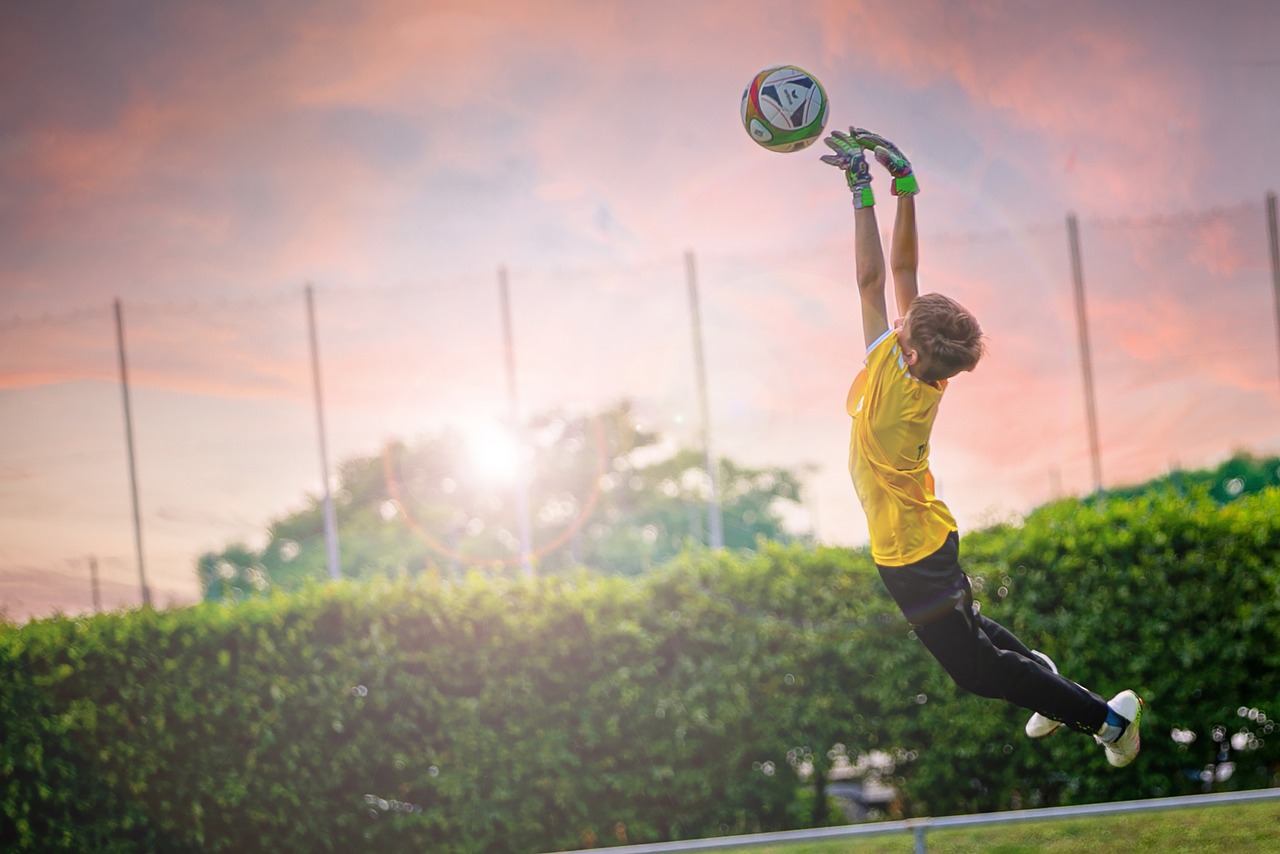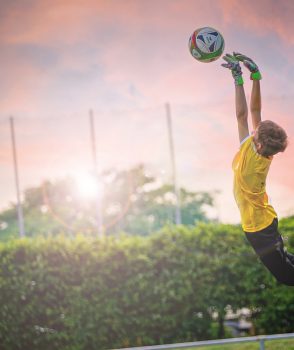England captain Harry Kane famously impressed football scouts as a goalkeeper when he was a child, and has played in goal for Spurs as an adult. But not every child enjoys playing in goal, and many will shy away from it if given the opportunity. I strongly believe all young footballers should take a turn in goal in their formative years. Here are my top five reasons why.
1. They might be goalkeepers in the future
Most obviously, giving kids time in goal in football matches will help them develop the skills successful goalkeepers need. Children develop motor skills way faster before they hit adolescence. So under 7s, 8s and 9s is the perfect time for them to learn a range of techniques that they might find harder when they’re older.

Mixing outfield play and goalkeeping hits a lot of sweet spots in that regard: Manuel Neuer, David De Gea, Joe Hart and Jordan Pickford all played in outfield roles for youth teams into their teenage years before becoming specialist keepers. Part of the reason for all their success is their ability with the ball at their feet. (Neuer arguably invented the “sweeper keeper” role.)
But would they have made it as outfield players in the professional game? It would seem unlikely. And surely most kids, given the opportunity, would – as Harry Kane offered to do for Arsenal – rather play as goalkeepers than leave the game altogether. So give all your players a turn in goal and see what happens. They may grow to enjoy and even excel at it.
2. It helps them understand what goalkeepers do and don’t want opposition players to do
The converse idea to point 1 is this: a player who may grow up to be a striker will benefit from playing in goal by learning what goalkeepers do and don’t want strikers to do.

For example, goalkeepers typically want to be able to make a decision (should I dive for the ball, spread out, come forward, and so on). The best strikers make them wait for that decision as long as possible. Seeing the situation through the goalkeepers eyes will help the young striker understand and play on that as early and as successfully as possible.
(This is of course true of other positions. And it is a major reason why I and many other coaches believe in rotating players through all the positions on the football pitch as much as possible.)
3. It’s fair
Many young footballers will see playing in goal as an arduous chore. But getting everyone to take a turn at helps them appreciate the idea of fairness.
It’s an important sense to develop in team sports and carries over into adult life for any team activity – both on and off the sports pitch. The idea that ‘everyone takes their turn at doing the crap jobs’ is perhaps most famously embedded in rugby union’s All Blacks taking turns to sweep out the changing rooms after a game – an idea described in James Kerr’s influential book about the New Zealand team culture, Legacy. And, more importantly, it’s an important part of developing “team player” skills for everyone.
Kids do find fairness less important as they grow older. Ask a six-year-old if everyone should play in goal and they’re likely to say yes. Ask a ten-year-old and they’ll probably tell you only the best goalie should. But the idea that everyone should pitch in to help the team is an important one for developing future team players and future leaders, in business and the community as well as in sport.
4. It develops empathy
Goalkeeping is a harsh role. A striker can miss five chances and score one and be a hero. But a keeper can make five world-class saves, make one error and be the villain of the day. And kids won’t necessarily understand how it feels to be in that position unless they’ve been there themselves.
Emotional skills are increasingly valued in football, other sports and in life in general. (That’s one of the reasons why AI won’t be replacing football coaches any time soon). Playing in goal today could help a child develop empathy for their goalkeeper tomorrow. That could make a big difference to both players’ lives.
5. It’s a great place to watch – and learn about – the game.
How hard is it to get substitutes to watch the game at Under 7s – or even Under 11s? And yet watching football being played is one of the ways young people learn physical skills and develop tactical knowledge. Copying other players’ movements is one of the ways children develop sporting technique. (Golfing great Bobby Jones never had a golf lesson in his life and developed his Grand Slam-winning swing purely by copying that of the players he watched growing up, as Jones’s biographer Mark Frost describes.) But, also, watching the way play unfolds up the field will help young footballers understand the tactical side of the game, too.
6. It rests football-specific muscles and helps develop other ones
Arguably most importantly from an all-round physical development perspective, playing in goal uses a different set of muscles to playing outfield. And especially for kids who play a lot of football, using different muscles can help prevent overuse injuries. It can also help increase overall strength and physical development. Put simply, using different muscle groups helps develop all muscle groups. It may help them play better outfield, too: a study by academics in the USA found that running performance in athletes improved more when they trained using swimming as well as running compared with when they trained using running alone.
I’ve held these principles ever since I started out in football coaching. At Under 7s and Under 8s everyone took a turn in goal. This was regardless of the likely impact on the match’s scoreline. I gradually reduced this requirement until, for my current Under 12s, I only those who want to play in goal long-term to do so.
But I still rotate to a certain extent. And I ask the keepers to join in with outfield training games at practice sessions. The chances of one of them being the next Harry Kane may be slim. But I know that at least the six other benefits above are helping them improve as footballers and as people.

